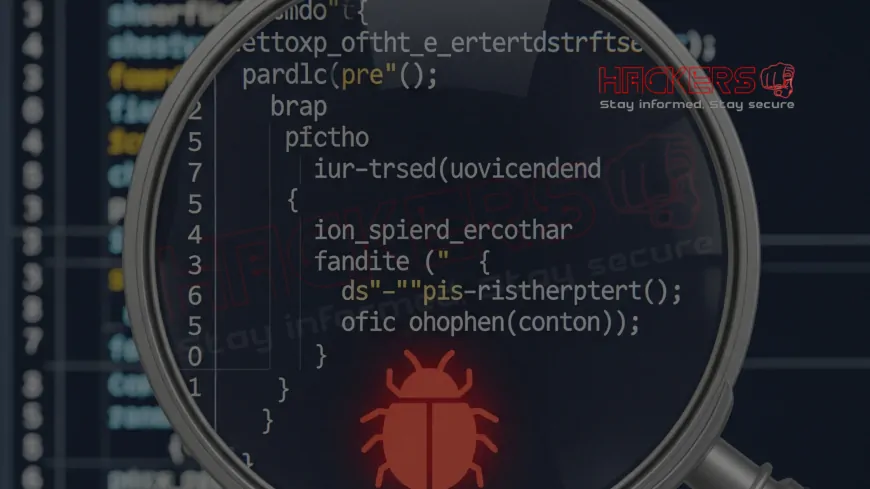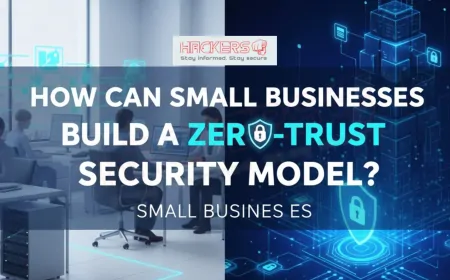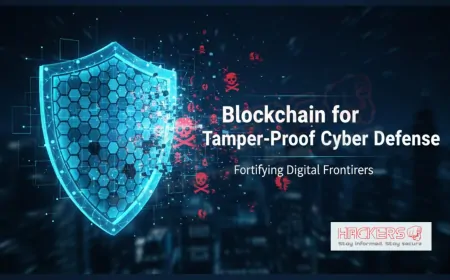How Can You Earn Through Bug Bounty and Vulnerability Research?
Imagine this: You spot a tiny glitch in a popular app, report it, and weeks later—ding—you get $5,000. That’s bug bounty hunting: turning curiosity into cash. I started as a developer tinkering with code and grew into a full-time vulnerability researcher earning six figures. In 2025, with cyberattacks soaring, companies are paying big for sharp eyes. Bug bounties aren’t just side gigs—they can launch reputations, income streams, even businesses. This guide breaks it down: skills, platforms, strategies, and how to scale. No PhD—just persistence. Ready to start hunting?

Table of Contents
- Understanding Bug Bounties and Vulnerability Research
- Building Essential Skills for Beginners
- Choosing the Right Bug Bounty Platforms
- Effective Hunting Strategies
- Reporting Vulnerabilities and Maximizing Payouts
- Legal and Ethical Considerations
- Real-World Success Stories
- Scaling to a Full Entrepreneurial Venture
- Conclusion
- Frequently Asked Questions
Understanding Bug Bounties and Vulnerability Research
Bug bounties sound mysterious, but they're straightforward: Companies invite ethical hackers to find flaws in their software, websites, or apps, offering rewards for valid discoveries. Think of it as a treasure hunt where the treasure is cash for exposing risks before bad actors do. Vulnerability research is the broader practice digging into systems to uncover weaknesses, often feeding into bounties or independent sales.
Why do companies run these? In a world where data breaches cost $4.45 million on average, prevention is cheaper than cure.
There are two main flavors. Public bounties are open to all, listed on platforms great for starters. Private invites go to top hunters, with fatter payouts but tougher entry. Vulnerability research extends beyond bounties; you might sell findings to firms or use them to build tools for sale. I started with public programs, nabbing $500 on my first XSS (cross-site scripting, where attackers inject harmful code into web pages) find. It snowballed from there.
This isn't get-rich-quick beginners might earn $0 in the first months as they learn.
Building Essential Skills for Beginners
You don't need a fancy degree; many top hunters are self-taught. Start with fundamentals: Understand web tech like HTML, JavaScript, and how servers talk (HTTP basics). Free resources abound—PortSwigger's Web Security Academy teaches via labs, no cost.
Key areas:
- Common vulnerabilities: Learn OWASP Top 10, like SQL injection (tricking databases into spilling data) or broken authentication (easy logins for hackers).
- Tools: Burp Suite for intercepting traffic (community edition is free), Nmap for scanning ports.
- Practice: HackTheBox or TryHackMe offer virtual machines to "break" safely.
Dedicate 10-20 hours weekly. I recommend Peter Yaworski's "The Web Application Hacker's Handbook" it demystifies real bugs.
For entrepreneurship, hone reporting: Clear, reproducible steps turn finds into paydays. Track progress in a journal what worked, what flopped. In three months, you'll spot low-hanging fruit. Remember my first dry spell? Two months of nada, then a $200 IDOR (insecure direct object reference, accessing others' data) win. Skills compound; invest now for entrepreneurial freedom later.
Pro tip: Specialize early. Web apps? Focus there. Web3? Dive into smart contracts. This niches you as an expert, commanding higher rates.
Choosing the Right Bug Bounty Platforms
Platforms connect hunters to programs think marketplaces for bugs. In 2025, top ones include HackerOne (pioneers, with leaderboards showing earners like cuervo1 at $804K total), Bugcrowd (user-friendly for newbies), and Intigriti (European focus, agile pentests).
Start with beginner-friendly: Open Bug Bounty for non-paying practice, building reports. YesWeHack and HackenProof suit globals, with diverse scopes.
To compare, here's a table of leading platforms as of 2025:
| Platform | Focus Areas | Avg Payout Range | Beginner-Friendly? |
|---|---|---|---|
| HackerOne | Web, Mobile, Crypto | $500-$50,000 | Yes, with public programs |
| Bugcrowd | Apps, APIs, IoT | $300-$20,000 | Highly, with VRT ratings |
| Intigriti | Web, Pentesting | €250-€10,000 | Yes, community challenges |
| Immunefi | Web3, Blockchain | $1,000-$100,000 | Moderate, crypto knowledge needed |
| YesWeHack | Global Apps, IoT | €100-€15,000 | Yes, multilingual |
Sign up, read scopes (what's in/out bounds), and start small. Platforms take a cut (10-20%), but handle legal stuff. For entrepreneurs, diversify hunt on three to balance dry spells.
Effective Hunting Strategies
Hunting is 90% persistence, 10% genius. Start with recon: Map targets using tools like Amass for subdomains. Then, test systematically—fuzz inputs for injections, check auth flows.
- Daily routine: 2 hours recon, 4 testing one app. Rotate to avoid burnout.
- Niche down: If web dev background, target JS frameworks for prototype pollution (manipulating object creation).
- Automate: Scripts for common scans, but manual for impact.
Collaborate ethically share non-sensitive tips on Twitter. In 2025, AI tools like Burp extensions speed scans, but don't rely solely; understanding matters. My strategy? "Unfashionable flaws" overlooked basics pay steady.
Remember, quality over quantity. One critical find trumps ten minors. As an entrepreneur, log everything builds your portfolio for bigger gigs.
Reporting Vulnerabilities and Maximizing Payouts
A great find flops without a solid report. Structure: Summary, steps to repro, impact (e.g., "Allows account takeover"), proof-of-concept code, fix suggestions.
Impact sells: Quantify "Exposes 1M user emails." Use screenshots, videos. Platforms rate severity (P1 critical to P5 info), dictating pay. Negotiate politely if lowballed.
- Clear language: Avoid jargon; explain like to a non-tech exec.
- Responsible disclosure: Give fix time before public.
- Taxes: US hunters report as self-employment; track via QuickBooks.
Average? Beginners $1K-3K/month post-ramp-up; pros $10K+.
Legal and Ethical Considerations
Ethics first: Only test in-scope assets; get permission. NDAs protect secrets. Legally, bounties shield you follow rules to avoid lawsuits.
- Scope creep: Stick to guidelines; out-of-bounds risks bans.
- International: EU GDPR adds disclosure layers.
- Build trust: Transparent reports earn invites.
As entrepreneur, form LLC for liability. I learned hard early overstep cost a platform ban. Now, ethics guide my brand.
Real-World Success Stories
Inspiration fuels hunts. Take 3NVZ: In 150 days, hit 100 Bugcrowd points, scored a critical P1 paying thousands.
- Rajan: Intern to first bounty via project bugs.
- Abhijeet: 16 reports, from injections to dorks netting $3,500.
- Walrus: $100K bounty launched, drawing global hunters.
These aren't outliers; consistent effort yields stories like yours.
Scaling to a Full Entrepreneurial Venture
Bounties are starters; scale by teaching (Udemy courses), consulting, or tools (custom scanners). Network on X—tips flow.
Challenges: Dry spells buffer funds. But freedom? Priceless.
Conclusion
From basics to scaling, bug bounties offer entrepreneurs a dynamic income stream. Build skills, pick platforms, hunt smart, report sharp, stay ethical, draw from stories and watch earnings grow. In 2025's threat landscape, your hunts protect and profit. Start today; your first payout awaits. What's your move? Comment below.
Frequently Asked Questions
Do I need coding experience for bug bounties?
Not deeply, but basics help. Start with web fundamentals; practice on labs like PortSwigger. Many earn with scripting alone.
How much can beginners earn monthly?
$0 first months, then $500-2,000 as skills grow. Consistency key full-timers hit $5K+.
What's the best platform for starters?
Bugcrowd or HackerOne—clear scopes, supportive communities. Try Open Bug Bounty for practice.
How long to find my first bug?
1-6 months. Focus learning; first win builds momentum.
Are bug bounties legal?
Yes, if in-scope. Platforms provide safe harbor; always read rules.
What tools do I need?
Free: Burp Suite Community, Nmap, browser dev tools. Upgrade later.
Can I do this part-time?
Absolutely many balance jobs, earning $1K-3K monthly evenings.
How do payouts work?
Via PayPal/Payoneer post-validation. Expect 30-90 days; taxes apply.
What's a critical vulnerability worth?
$10K-$100K, depending on impact like data theft.
Should I specialize?
Yes web, mobile, or web3. Niches pay more long-term.
How to avoid burnout?
Set schedules, take breaks, join communities for support.
Do companies negotiate payouts?
Sometimes highlight impact to push higher.
What's OWASP Top 10?
Common web risks list; study for quick wins.
Can non-US residents participate?
Yes, most platforms global; check tax forms.
How to build a report?
Summary, steps, impact, PoC. Keep concise, visual.
Are there web3 bounties?
Plenty on Immunefi high rewards for smart contract flaws.
What if my report's rejected?
Learn why; iterate. Rejections sharpen skills.
Can bounties lead to jobs?
Often top hunters get invites, consult gigs.
How to stay updated in 2025?
Follow blogs, X, newsletters like TL;DR Sec.
Is AI changing bug hunting?
Yes tools automate recon; focus on creative impacts.
What's Your Reaction?










































































